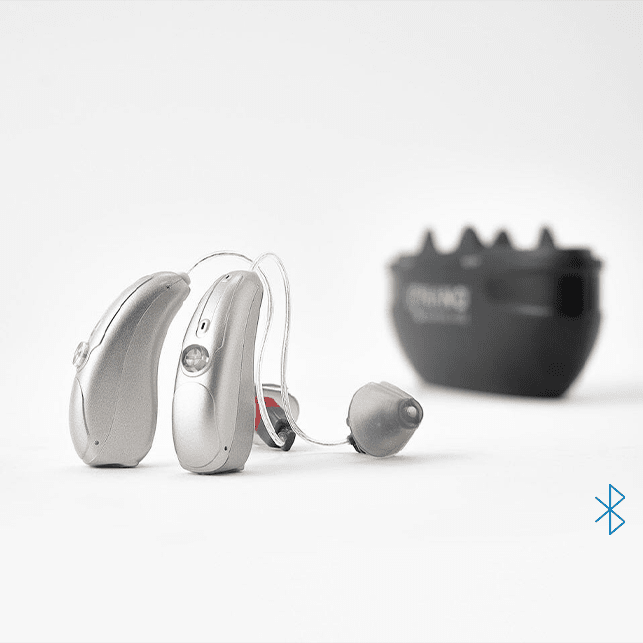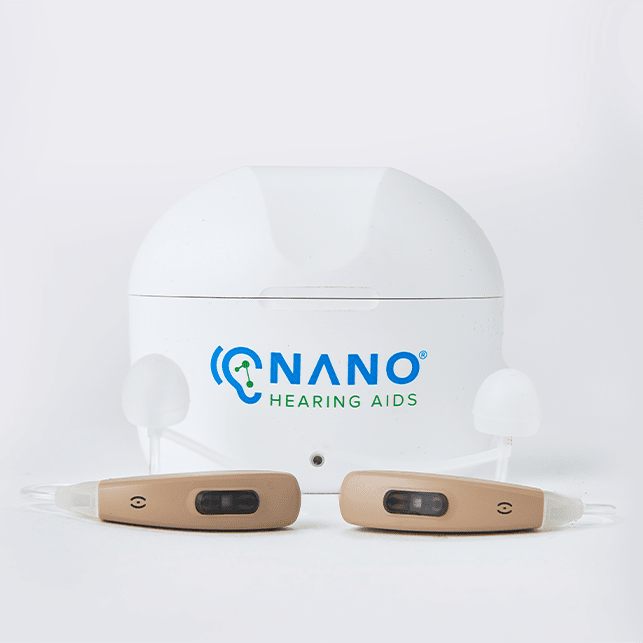Key Takeaways
Living with tinnitus can cause many challenges in daily life, especially when it seems to intensify in quiet environments. For many individuals, the onset of tinnitus symptoms during moments of silence can be particularly distressing.
In this article, we'll share more information about this condition, explain what causes tinnitus to worsen in quiet environments, and offer some tips on how you can better manage it.
What is Tinnitus?
Tinnitus is a condition that causes buzzing or ringing in either both ears or just one ear. The intensity can vary - with some people experiencing a faint background hum and others hearing a persistent, intrusive ringing. It’s a pretty challenging condition to manage.
Unlike physical discomfort such as knee pain - which can often be pinpointed and treated directly - tinnitus is a complex auditory issue that can worsen in quiet environments, making it difficult to relax or sleep.
Potential Causes of Tinnitus
To qualify for NHS hearing aids, you must first meet specific eligibility criteria that focus on the severity of hearing loss and its impact on daily life.

There are two types of tinnitus: subjective and objective. Subjective tinnitus is when only you can hear the noise. It’s usually linked to loud noise exposure, aging, ear infections, or even certain medications. On the other hand, objective tinnitus is rarer and can actually be heard by a doctor during an exam. It’s often tied to issues like high blood pressure, vascular growths, or muscle spasms, with the sounds typically matching up to your heartbeat or muscle movements (image courtesy of Verywell Health).
Why Does Tinnitus Become Worse in a Quiet Environment?
One of the main symptoms of tinnitus is that the ringing or buzzing sound can be exacerbated in quiet environments. This can be attributed to several reasons:
Silence tends to amplify internal bodily sounds, making the ringing or buzzing much more noticeable.
In the absence of external or background noise, the brain might hyperfocus on the internal noise generated by tinnitus, amplifying its perceived intensity.
Quiet environments lack the masking effect of ambient noise, which typically helps to camouflage tinnitus and provide relief for people suffering from the condition.
Environmental Noise and Tinnitus
Environmental noise and outdoor noise - including traffic noise and air traffic - can potentially exacerbate tinnitus symptoms too. Sometimes high levels of noise pollution can increase the risk of developing tinnitus.
Additional Symptoms of Tinnitus
Besides the ringing or buzzing sound, tinnitus can also create many other uncomfortable symptoms which can be continuous or intermittent, including:

Prolonged exposure to loud noise can also damage the delicate hair cells in the inner ear, leading to hearing loss and the onset of tinnitus (image courtesy of Hear4U).
Nano Hearing Aids are FDA-registered, Class I devices. These OTC hearing aids are designed for individuals over 18 years of age with perceived mild to moderate hearing impairment. Nano won the Top ENT Solution Provider 2023, has 24/7 customer care, and has an affordable price compared to others.
Tips to Manage Tinnitus in Quiet Environments
Here are some strategies that you can use to reduce your tinnitus symptoms and improve your quality of life.
Could Tinnitus Be a Sign of Hearing Loss?
While tinnitus can have many potential causes, it can sometimes indicate either mild to moderate hearing loss, or even severe hearing loss.
Symptoms of Mild to Moderate Hearing Loss
Symptoms of Severe Hearing Loss
If you notice a ringing or buzzing sound in one or both of your ears, or any of the symptoms above, schedule an appointment with a hearing healthcare professional immediately.
Frequently Asked Questions (FAQ)
What causes tinnitus?
Tinnitus can result from prolonged noise exposure, aging, ear infections, earwax buildup, certain medications, and underlying health issues like high blood pressure or TMJ.
Why does tinnitus feel worse when it’s quiet?
In quiet settings, there’s no background noise to mask the ringing or buzzing, so your brain focuses more on the internal sounds, making them seem louder and more bothersome.
How can I manage tinnitus at night?
You can manage tinnitus at night by using pillow speakers, white noise machines, or soft music to create a soothing sound environment.
Should I see a doctor for tinnitus?
Yes, you should see a doctor if your tinnitus persists or worsens, or if you notice signs of hearing loss.




